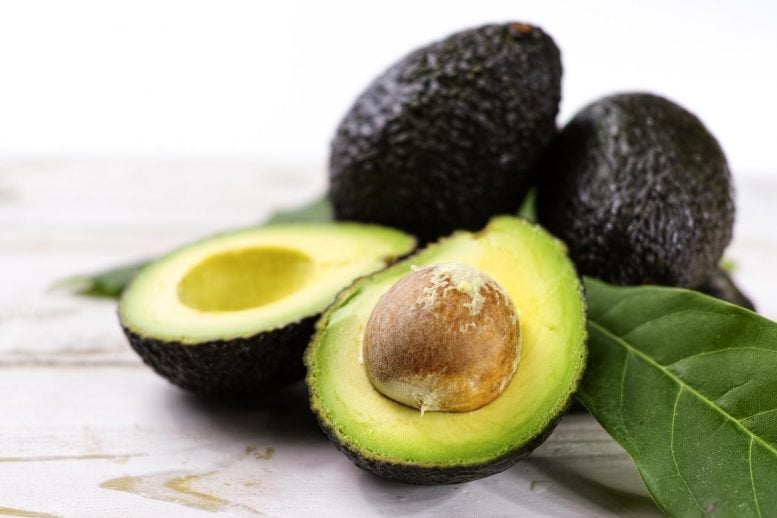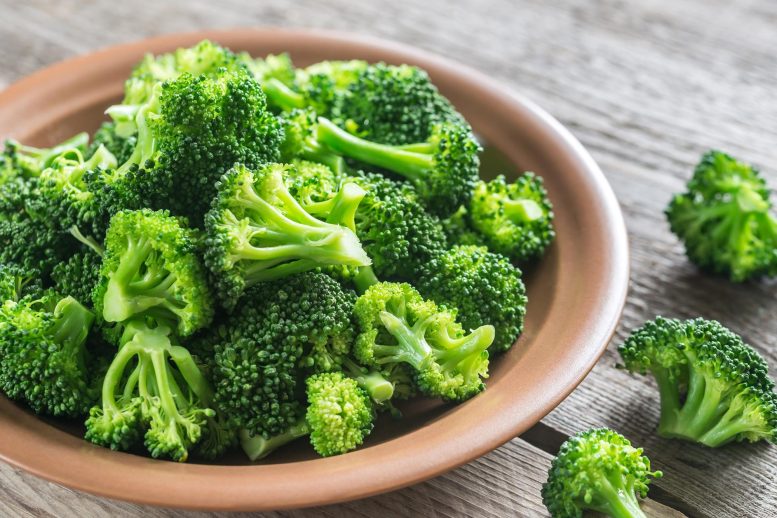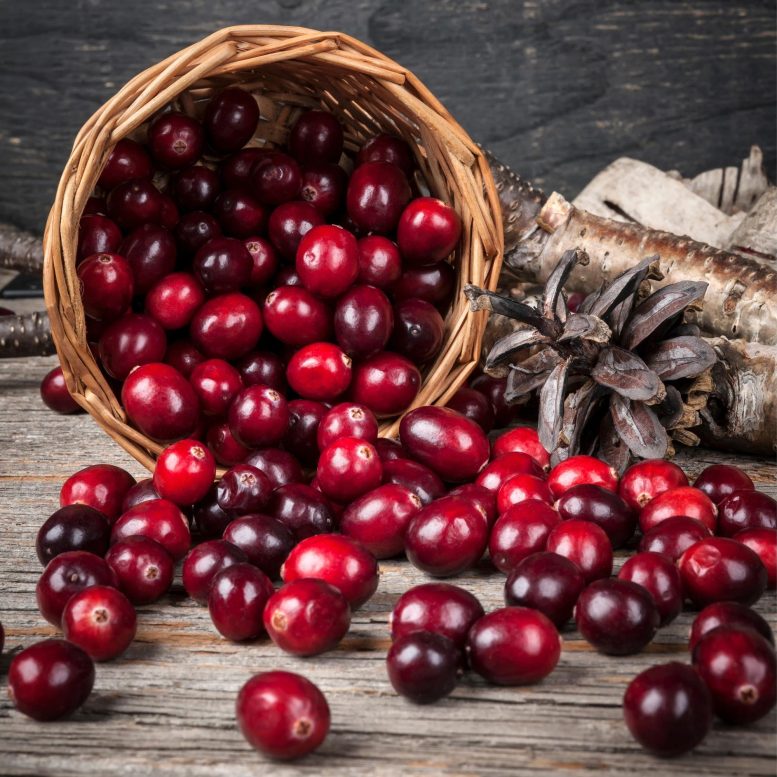30-Year Study Finds Eating Two Servings of Avocados a Week Linked to Lower Risk of Cardiovascular Disease

- A 30-year study of more than 110,000 health professionals found that participants who ate at least two servings of avocado a week had a lower risk of cardiovascular disease compared to those who rarely ate avocados.
- Replacing animal products like butter, cheese, or bacon with avocado was also associated with a lower risk of cardiovascular disease events.
Eating two or more servings of avocado weekly was associated with a lower risk of cardiovascular disease, and substituting avocado for certain fat-containing foods like butter, cheese, or processed meats was associated with a lower risk of cardiovascular disease events, according to new research published today in the Journal of the American Heart Association, an open access, peer-reviewed journal of the American Heart Association.
Avocados contain dietary fiber, unsaturated fats especially monounsaturated fat (healthy fats) and other favorable components that have been associated with good cardiovascular health. Clinical trials have previously found avocados have a positive impact on cardiovascular risk factors including high cholesterol.
Researchers believe this is the first, large, prospective study to support the positive association between higher avocado consumption and lower cardiovascular events, such as coronary heart disease and stroke.
“Our study provides further evidence that the intake of plant-sourced unsaturated fats can improve diet quality and is an important component in cardiovascular disease prevention,” said Lorena S. Pacheco, Ph.D., M.P.H., R.D.N., lead author of the study and a postdoctoral research fellow in the nutrition department at the Harvard T.H. Chan School of Public Health in Boston. “These are particularly notable findings since the consumption of avocados has risen steeply in the U.S. in the last 20 years, according to data from the U.S. Department of Agriculture.”
For 30 years, researchers followed more than 68,780 women (ages 30 to 55 years) from the Nurses’ Health Study and more than 41,700 men (ages 40 to 75 years) from the Health Professionals Follow-up Study. All study participants were free of cancer, coronary heart disease and stroke at the start of the study and living in the United States. Researchers documented 9,185 coronary heart disease events and 5,290 strokes during more than 30 years of follow-up. Researchers assessed participants’ diet using food frequency questionnaires given at the beginning of the study and then every four years. They calculated avocado intake from a questionnaire item that asked about the amount consumed and frequency. One serving equaled half of an avocado or a half cup of avocado.
The analysis found:
- After considering a wide range of cardiovascular risk factors and overall diet, study participants who ate at least two servings of avocado each week had a 16% lower risk of cardiovascular disease and a 21% lower risk of coronary heart disease, compared to those who never or rarely ate avocados.
- Based on statistical modeling, replacing half a serving daily of margarine, butter, egg, yogurt, cheese or processed meats such as bacon with the same amount of avocado was associated with a 16% to 22% lower risk of cardiovascular disease events.
- Substituting half a serving a day of avocado for the equivalent amount of olive oil, nuts and other plant oils showed no additional benefit.
- No significant associations were noted in relation to stroke risk and how much avocado was eaten.
The study’s results provide additional guidance for health care professionals to share. Offering the suggestion to “replace certain spreads and saturated fat-containing foods, such as cheese and processed meats, with avocado is something physicians and other health care practitioners such as registered dietitians can do when they meet with patients, especially since avocado is a well-accepted food,” Pacheco said.
The study aligns with the American Heart Association’s guidance to follow the Mediterranean diet – a dietary pattern focused on fruits, vegetables, grains, beans, fish and other healthy foods and plant-based fats such as olive, canola, sesame and other non-tropical oils.
“These findings are significant because a healthy dietary pattern is the cornerstone for cardiovascular health, however, it can be difficult for many Americans to achieve and adhere to healthy eating patterns,” said Cheryl Anderson, Ph.D., M.P.H., FAHA, chair of the American Heart Association’s Council on Epidemiology and Prevention.
“We desperately need strategies to improve intake of AHA-recommended healthy diets — such as the Mediterranean diet — that are rich in vegetables and fruits,” said Anderson, who is professor and dean of the Herbert Wertheim School of Public Health and Human Longevity Science at University of California San Diego. “Although no one food is the solution to routinely eating a healthy diet, this study is evidence that avocados have possible health benefits. This is promising because it is a food item that is popular, accessible, desirable and easy to include in meals eaten by many Americans at home and in restaurants.”
The study is observational, so a direct cause and effect cannot be proved. Two other limitations of the research involve data collection and the composition of the study population. The study analyses may be affected by measurement errors because dietary consumption was self-reported. Participants were mostly white nurses and health care professionals, so these results may not apply to other groups.
Reference: 30 March 2022, Journal of the American Heart Association.
10.1161/JAHA.121.024014
Co-authors are Yanping Li, Ph.D.; Eric B. Rimm, Sc.D.; JoAnn E. Manson, M.D., Dr.P.H.; Qi Sun, M.D., Sc.D., M.M.S.; Kathryn Rexrode, M.D., M.P.H.; Frank B. Hu, M.D., Ph.D., M.P.H.; and Marta Guasch-Ferré, Ph.D.
The study was funded by the National Institutes of Health, the National Institute of Diabetes and Digestive and Kidney Diseases, a division of the National Institutes of Health and the Harvard Chan Yerby Fellowship at Harvard T.H. Chan School of Public Health.
Chemical Found in Broccoli Shown To Slow Growth of COVID-19 and Common Cold Viruses

A Johns Hopkins Children’s Center-led study in mice and lab-grown cells finds sulforaphane could help prevent and treat illnesses caused by certain coronaviruses, including COVID-19.
Researchers at Johns Hopkins Children’s Center report evidence from lab experiments that a chemical derived from a compound found abundantly in broccoli and other cruciferous plants may offer a potentially new and potent weapon against the viruses that cause COVID-19 and the common cold. COVID-19 has already killed more than 6 million people worldwide, and studies have shown that common colds cost an estimated economic loss of $25 billion in the U.S. alone each year.
In a study described on March 18, 2022, in the Nature journal Communications Biology, the scientists showed that sulforaphane, a plant-derived chemical, known as a phytochemical, already found to have anti-cancer effects, can inhibit the replication of SARS-CoV-2, the coronavirus that causes COVID-19, and another human coronavirus in cells and mice.
While the results are promising, the researchers caution the public against rushing to buy sulforaphane supplements available online and in stores, noting that studies of sulforaphane in humans are necessary before the chemical is proven effective, and emphasizing the lack of regulation covering such supplements.
Sulforaphane’s natural precursor is particularly abundant in broccoli, cabbage, kale, and Brussels sprouts. First identified as a “chemopreventive” compound by a team of Johns Hopkins scientists decades ago, natural sulforaphane is derived from common food sources, such as broccoli seeds, sprouts, and mature plants, as well as infusions of sprouts or seeds for drinking. Previous studies, including those at Johns Hopkins Medicine, have shown sulforaphane to have cancer and infection-prevention properties by way of interfering with certain cellular processes.
“When the COVID-19 pandemic started, our multidisciplinary research teams switched our investigations of other viruses and bacteria to focus on a potential treatment for what was then a challenging new virus for us,” says Children’s Center microbiologist Lori Jones-Brando, Ph.D., an assistant professor of pediatrics at the Johns Hopkins University School of Medicine and the senior author of the paper. “I was screening multiple compounds for anti-coronavirus activity and decided to try sulforaphane since it has shown modest activity against other microbial agents that we study.” The researchers used purified, synthetic sulforaphane purchased from commercial chemical suppliers in their experiments.
In one experiment, the research team first exposed cells to sulforaphane for one to two hours before infecting the cells with SARS-CoV-2 and the common cold coronavirus, HCoV-OC43. They found that low micromolar (µM) concentrations of sulforaphane (2.4–31 µM) reduced the replication by 50% of six strains of SARS-CoV-2, including the delta and omicron variants, as well as that of the HCoV-OC43 coronavirus. The investigators also observed similar results with cells that had been previously infected with the viruses, in which the protective effects of sulforaphane were seen even with an already established virus infection.
The group also examined the effects of sulforaphane when combined with remdesivir, an antiviral medication used to shorten the recovery of hospitalized adults with COVID-19 infections. In their findings, remdesivir inhibited 50% of the replication of HCoV-OC43 and SARS-CoV-2 at 22 µM and 4 µM, respectively. Further, the research team reports that sulforaphane and remdesivir interacted synergistically at several combination ratios to reduce by 50% the viral burden in cells infected with HCoV-OC43 or SARS-CoV-2. In this context, synergism means that lower doses of both sulforaphane (for example, 1.6–3.2 µM) and remdesivir (for example, 0.5–3.2 µM), when combined, are more effective against the viruses than either applied alone.
“Historically, we have learned that the combination of multiple compounds in a treatment regimen is an ideal strategy to treat viral infections,” says Alvaro Ordonez, M.D., the first author of the paper and an assistant professor of pediatrics at the Johns Hopkins University School of Medicine. “The fact that sulforaphane and remdesivir work better combined than alone is very encouraging.”
The researchers then conducted studies in a mouse model of SARS-CoV-2 infection. They found that giving 30 milligrams of sulforaphane per kilogram of body weight to mice before infecting them with the virus significantly decreased the loss of body weight that’s typically associated with virus infection (7.5% decrease). Further, the pretreatment resulted in a statistically significant decrease in both the viral load, or amount of virus, in the lungs (17% decrease) and upper respiratory tract (9% decrease) as well as the amount of lung injury (29% decrease) compared with infected mice that were not given sulforaphane. The compound also decreased inflammation in the lungs, protecting the cells from a hyperactive immune response that seems to be one of the driving factors that has caused many people to die from COVID-19.
“What we found is that sulforaphane is antiviral against HCoV-OC43 and SARS-CoV-2 coronaviruses while also helping control the immune response,” Ordonez says. “This multifunctional activity makes it an interesting compound to use against these viral infections, as well as those caused by other human coronaviruses.”
The team plans to conduct studies in humans to evaluate if sulforaphane can be effective in preventing or treating these infections.
“Despite the introduction of vaccines and other medications that can have side effects, effective antiviral agents are still necessary to prevent and treat COVID-19, particularly considering the potential effects of new coronavirus variants arising in the population,” Jones-Brando says. “Sulforaphane could be a promising treatment that is less expensive, safe, and readily available commercially.”
Reference: “Sulforaphane exhibits antiviral activity against pandemic SARS-CoV-2 and seasonal HCoV-OC43 coronaviruses in vitro and in mice” by Alvaro A. Ordonez, C. Korin Bullen, Andres F. Villabona-Rueda, Elizabeth A. Thompson, Mitchell L. Turner, Vanessa F. Merino, Yu Yan, John Kim, Stephanie L. Davis, Oliver Komm, Jonathan D. Powell, Franco R. D’Alessio, Robert H. Yolken, Sanjay K. Jain and Lorraine Jones-Brando, 18 March 2022, Communications Biology.
DOI: 10.1038/s42003-022-03189-z
Along with Jones-Brando and Ordonez, other Johns Hopkins Medicine authors of the paper include C. Korin Bullen, Andres F. Villabona-Rueda, Elizabeth A. Thompson, Mitchell L. Turner, Vanessa F. Merino, Yu Yan, John Kim, Stephanie L. Davis, Oliver Komm, Jonathan D. Powell, Franco R. D’Alessio, Robert H. Yolken and Sanjay K. Jain.
The study was funded by the National Institutes of Health, Mercatus Center, the Center for Infection and Inflammation Imaging Research at the Johns Hopkins University School of Medicine and the Stanley Medical Research Institute.
Jones-Brando, Ordonez, Yolken and Jain are co-inventors on a pending patent application (USPA 22 719 #63/142,598), “Methods for inhibiting coronaviruses using sulforaphane” filed by The Johns Hopkins University. All other authors have no competing interests
Heart Healthy Food: Eating Cranberries Daily Improves Cardiovascular Health

A new clinical trial found daily consumption of cranberries for one month improved cardiovascular function in healthy men.
The new study, published on March 22, 2022, in Food & Function, included 45 healthy men who consumed whole cranberry powder equivalent to 100g of fresh cranberries per day (9 g powder) or a placebo for one month. Those consuming cranberry had a significant improvement in flow-mediated dilation (FMD), which signals improvement of heart and blood vessel function. FMD is considered a sensitive biomarker of cardiovascular disease risk and measures how blood vessels widen when blood flow increases.
Dr. Ana Rodriguez-Mateos, Senior Lecturer in Nutrition at the Department of Nutritional Sciences at King’s College London and senior author of the study, said: “The increases in polyphenols and metabolites in the bloodstream and the related improvements in flow-mediated dilation after cranberry consumption emphasize the important role cranberries may play in cardiovascular disease prevention. The fact that these improvements in cardiovascular health were seen with an amount of cranberries that can be reasonably consumed daily makes cranberry an important fruit in the prevention of cardiovascular disease for the general public.”
Low consumption of fruits and vegetables is one of the top modifiable risk factors associated with a higher incidence of cardiovascular disease worldwide. Growing evidence continues to link the polyphenols from berries with heart health benefits. Cranberries are rich in unique proanthocyanidins that have distinct properties compared to polyphenols found in other fruits.
This study explored whole cranberry freeze-dried powder, equivalent to 100g of fresh cranberries, and its impact on cardiovascular health. The results demonstrated that consumption of cranberries as part of a healthy diet can help reduce the risk of cardiovascular disease by improving blood vessel function.
An initial pilot study was completed with five healthy young men to confirm the biological activity of the whole cranberry freeze-dried powder. The pilot concluded that cranberry consumption increased FMD and confirmed dosing. The main study was a gold standard study design examining 45 healthy men each consuming two packets of whole cranberry freeze-dried powder equivalent to 100g of fresh cranberries, or a placebo, daily for one month. The study found significant improvements in FMD two hours after first consumption and after one month of daily consumption showing both immediate and chronic benefit. In addition, metabolites were also identified and predicted the positive effects seen in FMD. These results conclude that cranberries can play an important role in supporting cardiovascular health and good blood vessel function.
Dr. Christian Heiss, Professor of Cardiovascular Medicine at the University of Surrey and co-author of the study said: “Our findings provide solid evidence that cranberries can significantly affect vascular health even in people with low cardiovascular risk. This study further indicates that specific metabolites present in blood after cranberry consumption are related to the beneficial effects.”
Reference: “Daily consumption of cranberry improves endothelial function in healthy adults: a double blind randomized controlled trial” by Christian Heiss, Geoffrey Istas, Rodrigo P. Feliciano, Timon Weber, Brian Wang, Claudia Favari, Pedro Mena, Daniele Del Rio and Ana Rodriguez-Mateos, 22 March 2022, Food & Function.
DOI: 10.1039/D2FO00080F
The study was supported by The Cranberry Institute, the Research Committee of the Medical Faculty of Heinrich-Heine University Dusseldorf and a Susanne Bunnenberg Heart Foundation grant to Dusseldorf Heart Centre. For more information about the Cranberry Institute, along with the health benefits of cranberries and current scientific research,
No comments:
Post a Comment